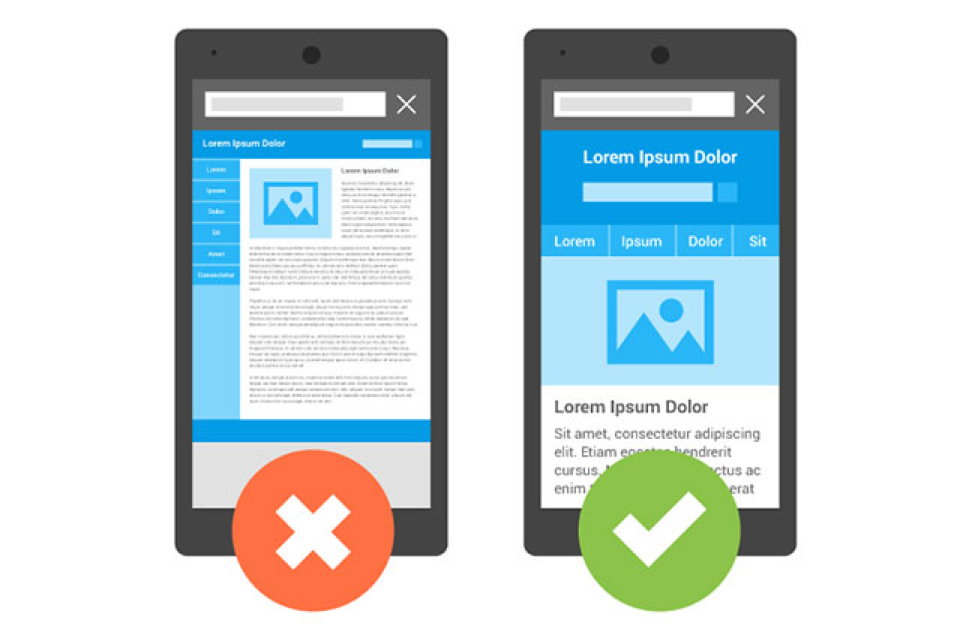The Importance of a Mobile-Friendly Website for Your Business
In today’s fast-paced digital world, a Mobile-Friendly Website is no longer just a nice-to-have—it’s essential. With mobile internet usage surpassing desktop, having a website that caters to mobile users is crucial for maintaining competitiveness and driving business success. If your site isn’t optimized for mobile, you could be missing out on a significant chunk of your audience. Here’s why a Mobile-Friendly Website is a game-changer for your business and how it can positively impact your bottom line.

1. Capture the Growing Mobile User Base
The rise of smartphones and tablets has led to a surge in mobile browsing. According to recent studies, more than 50% of global website traffic now comes from mobile devices. This trend is particularly strong among younger demographics, who rely heavily on their phones for browsing and shopping. By ensuring your website is mobile-friendly, you capture this vast and growing audience, providing them with a seamless browsing experience that meets their expectations.
2. Improve User Experience and Engagement
A Mobile-Friendly Website ensures a smooth and enjoyable user experience, which is crucial for keeping visitors engaged. Mobile optimization involves more than just resizing images and text; it includes making navigation intuitive, buttons easy to click, and content easily readable on smaller screens. A positive mobile experience reduces bounce rates and encourages users to spend more time on your site, increasing the likelihood of conversions and repeat visits.
3. Boost Your Search Engine Rankings
Search engines like Google prioritize mobile-friendly websites in their rankings, especially since they introduced mobile-first indexing. This means Google predominantly uses the mobile version of your site to determine rankings. A Mobile-Friendly Website is not only favored by search engines but also ensures that you are visible to users searching on mobile devices. By optimizing your site for mobile, you improve your chances of ranking higher in search results, driving more organic traffic to your site.
4. Enhance Local SEO and Visibility
For businesses that rely on local customers, having a Mobile-Friendly Website can significantly impact your local SEO efforts. Mobile users frequently search for nearby businesses and services while on the go. A mobile-optimized site ensures that local searches lead to a positive user experience, increasing the likelihood of visits to your physical location. Features like click-to-call buttons and easy-to-find contact information also enhance your site’s functionality for local searches.
5. Increase Conversion Rates
A seamless mobile experience directly influences conversion rates. Mobile users are more likely to complete transactions or sign up for services when they can easily navigate your site and access essential features. A Mobile-Friendly Website reduces friction in the conversion process, leading to higher sales, more leads, and greater customer satisfaction. Whether it’s through a streamlined checkout process or an accessible contact form, optimizing for mobile can significantly boost your conversion rates.
6. Adapt to User Behavior Trends
Mobile devices have changed how users interact with websites, leading to a shift in behavior and expectations. Users now expect fast loading times, easy navigation, and instant access to information. A Mobile-Friendly Website aligns with these new behaviors, ensuring that your site meets user expectations and keeps up with the latest trends. By adapting to these trends, you stay relevant and provide a modern, user-centric experience that resonates with your audience.
7. Reduce Bounce Rates and Increase Retention
A website that isn’t optimized for mobile can frustrate users, leading to high bounce rates and a loss of potential customers. If users have trouble navigating your site or accessing content on their mobile devices, they are likely to leave and turn to your competitors. A Mobile-Friendly Website minimizes these issues, improving user satisfaction and retention. By delivering a smooth mobile experience, you encourage visitors to stay longer and return more frequently.
8. Stay Ahead of Competitors
In a competitive market, having a Mobile-Friendly Website can set you apart from competitors who haven’t yet embraced mobile optimization. Consumers are increasingly prioritizing convenience and accessibility, and a mobile-optimized site demonstrates that your business values these factors. By offering a superior mobile experience, you not only attract more customers but also build a reputation as a forward-thinking and customer-focused business.
9. Future-Proof Your Website
As technology continues to evolve, mobile optimization is becoming more critical. Investing in a Mobile-Friendly Website ensures that you are prepared for future advancements and changes in user behavior. Responsive design and mobile-first strategies will keep your site adaptable to new devices and screen sizes, ensuring long-term relevance and functionality. Future-proofing your website helps you stay ahead of technological trends and maintain a competitive edge.
10. Improve Load Times and Performance
Mobile optimization goes hand-in-hand with improving site speed and performance. Mobile users are often on slower or less reliable connections, making fast load times essential for a positive user experience. A Mobile-Friendly Website typically includes performance optimizations such as compressed images, streamlined code, and faster server responses. These enhancements not only improve user satisfaction but also contribute to better SEO rankings and reduced bounce rates.
By prioritizing a Mobile-Friendly Website, you position your business to thrive in today’s mobile-driven world. Embrace mobile optimization to capture a larger audience, enhance user experience, and stay ahead in the competitive digital landscape.

